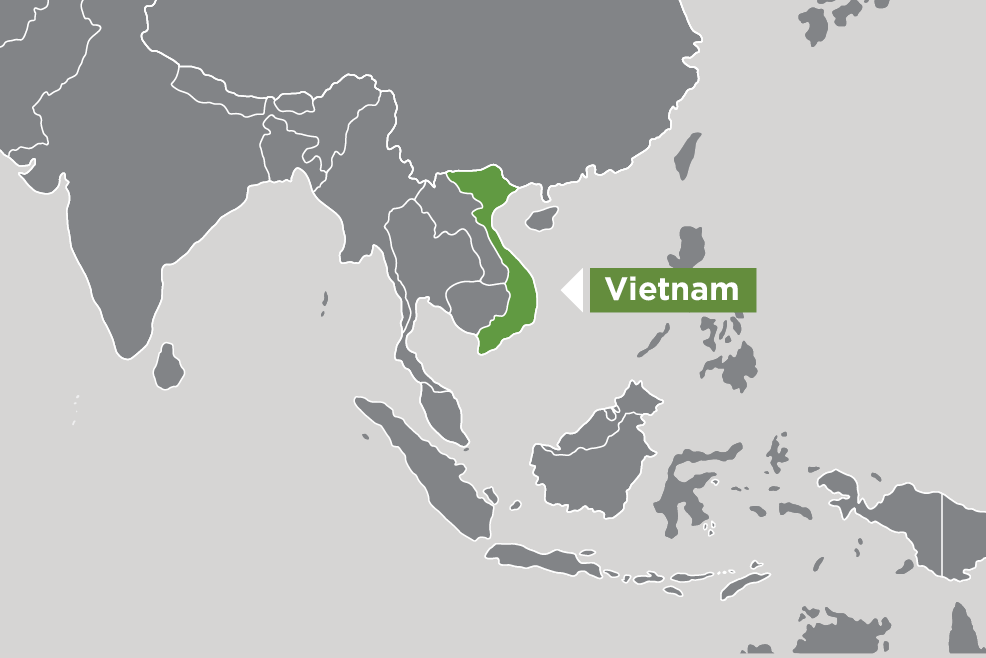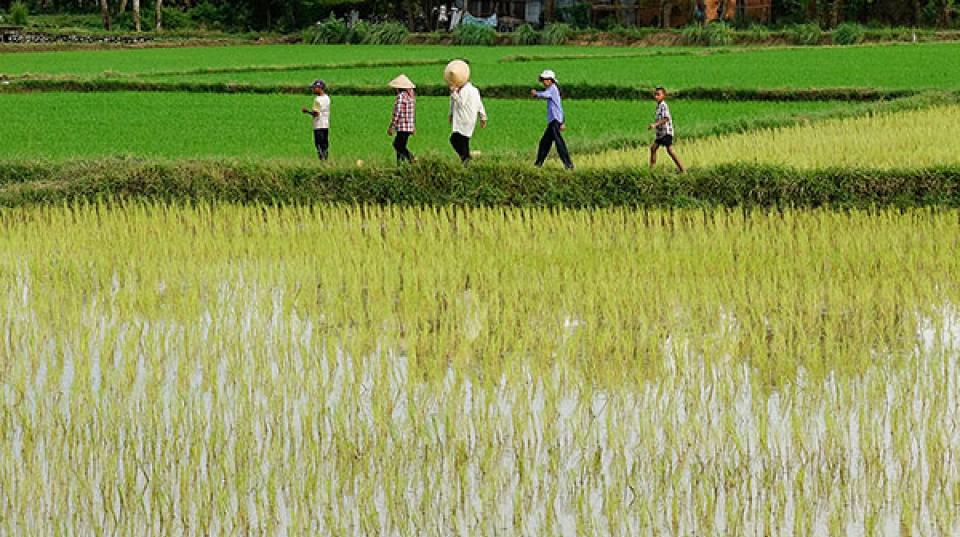Overview
This project aims to understand the impacts of upland crops on soil microbiological processes in the presence of salinity intrusion associated with climate change.
Specifically, this project aims to: quantify the magnitude of change in microbial diversity and resultant soil physiochemical properties incurred from including an upland crop in conjunction with soil management practices in saline affected areas typically dominated by rice production; identify the impact of these microbial and physiochemical changes on farm productivity and emissions and identify and potentially isolate a salt tolerant legume inoculum from soil.
Soil microbes are adaptable and responsive to the environment in which they reside. There have been previous studies conducted in the Mekong River Delta (MRD) indicating the responsiveness of the microbial community to changes in soil conditions through the implementation of upland crop rotations. Salt tolerant legumes like cowpea (Vigna unguiculata) are being trialled in MRD field trials as potential alternative crops with promising results to date (SLAM/2018/144).
Dry season saline intrusion caused by rising sea levels, a changing climate, land subsidence and upstream damming is affecting 100 000's of hectares of the rice producing area of the Vietnamese Mekong River Delta (MRD) (MARD, 2020). Dry season rice losses in the MRD region have driven the recent identification and transition to upland crops that can tolerate dry season salinity to provide farmers with new income opportunities (SLAM/2018/144).
Expected project activities and outcomes
- A scientific report or publication that identifies the impact of upland crops and associated soil management practices on soil microbial processes in saline environments when in the MRD dry season.
- A scientific report (or publication) on legume inoculum in the intermittent saline areas of the MRD.
- Presentation and workshop to DARD and farmers about microbial biodiversity because of upland crops and associated soil management options.
- New and improved collaboration between research agencies.
- In conjunction with SLAM/2018/144, develop targeted management options for farmers to optimise soil health, improve diversification and decrease chemical inputs.
- Improved understanding of soil microbial processes in the MRD in saline affected environments.
- Identify opportunities for the development of salt tolerant inoculum for the growth of legumes in the MRD dry season.
- Improved farmer management practice through the decreases and optimised fertiliser inputs to help decrease environmental impacts.
- Improved utilisation of rhizobia inoculums leading to effective N fixation by legumes
- Enhance yield opportunities and consequential income for farmers of alternative upland crops and subsequent rice crops.




